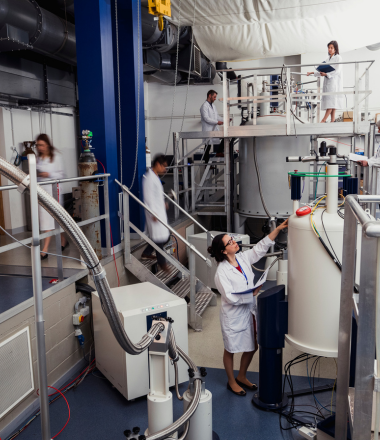The Role of Intellectual Property in the Pharmaceutical Industry

Role of IP in the Pharmaceutical Industry - Introduction
Emphasizing the pivotal role of intellectual property (IP) in fueling economic innovation cannot be overstated. In general, IP aims to champion and strengthen the right to protect original invention that comes from human intelligence by bestowing upon it the status of property.
These rights provide latitude for innovators, venture capitalists, and individuals harboring original ideas to bring forth their inventions and partake in the marketplace, thereby fostering economic expansion and industrial growth by means of healthy competition.
This article will closely examine the complex relationship between IP and its significant role in the business operations of the pharmaceutical sector. We'll examine the unique difficulties it faces and the critical role IP plays in defending that sector.
IP and the Pharmaceutical Industry Rationale
The pharmaceutical industry is different from many other economic sectors in that it stresses more importance on scientific knowledge advancement than on production techniques. Thus, the capabilities of a company's research and development department (R&D) is the major factor that determines its success. Because of this, pharmaceutical businesses typically rely primarily on investment in addition to consumer sales as their primary source of income.
Against this backdrop, pharmaceutical companies employ familiar IP safeguards, such as trademarks, patents, and trade secrets, to shield their products from replication, prohibit unauthorized usage, and secure a level playing field in the competitive landscape.
Nevertheless, the emphasis diverges in that the primary goal of securing their IP assets is to instill confidence among investors and consumers alike, recognizing that success hinges largely on fostering a trusting public relationship.
Challenges of a Pharmaceutical Company in Relations with IPR
Bluntly put, delving into the research, synthesis, and introduction of a new drug into the marketplace stands out as one of the most expensive and risky corporate endeavors for the pharmaceutical industry. The costs can soar into the hundreds of millions or even thousands of millions of dollars.
According to The Association of the British Pharmaceutical Industry, only one to two compounds out of a thousand successfully pass through all stages of R&D clinical trials to become a marketable medicine.
The exorbitant cost and risk associated with the failure to develop a commercial medicine are undeniable, particularly in scenarios where the drug in development fails to meet rigorous safety standards or is abandoned after years of substantial investment in the project.
In light of this context, one can envision a catastrophic scenario in which a chemical compound is reverse engineered by competitors, or worse, the trade secret is leaked or publicly disclosed without proper patent protection. It underscores the critical necessity for pharmaceutical companies to embrace a meticulous approach in safeguarding their intellectual assets.
Consequently, adopting a robust Intellectual Property rights framework provides the means to protect the substantial investments, time, money, and effort invested by both the innovators and investors in a project.
How IP Plays Its Role
-
Safeguarding Medical Innovation
Upon successfully developing a medicine ready for commercial use, the paramount concern lies in ensuring that the product remains immune to emulation through reverse engineering or leaks. The conventional solution to mitigate these risks often involves pursuing a patent application or treating the information as closely guarded trade secret.
-
Propels Competition and Economic Growth and more
As reiterated earlier, safeguarding the products of human intellect plays a pivotal role in granting grounds for fair competition and serves as a catalyst for the development of innovations that spur economic growth. The pharmaceutical industry aligns with these fundamental principles of Intellectual Property, and given its involvement in health-related matters, it carries substantial societal and individual implications.


-
Promotes Consumer and Investor Trust
The major determinant of a pharmaceutical company's success lies in fostering public and investor trust. Without the safeguard of Intellectual Property rights, a pharmaceutical company becomes susceptible to damage to its reputation through imitators selling identical products, posing significant health risks and damaging public relations.
Given the extensive time and financial resources required for drug development, a pharmaceutical company heavily relies on its reputation to instill confidence in investors regarding the potential returns on their investments. IP protection plays a crucial role in solidifying a healthy relationship between the company and the public as well as with corporate stakeholders.
-
Allows in Tackling Solutions for Worldwide Challenges
Engaging in the development of globally beneficial products such as vaccines and medicines is a highly corporatized, time-consuming, and expensive endeavor. Pharmaceutical companies heavily depend on investments to excel in their pursuit of scientific knowledge, enabling them to produce innovative solutions for addressing emerging or challenging-to-cure diseases. Intellectual property rights play a crucial role in fostering the motivation to navigate the complex process of transforming medical innovation into life-assisting medications.
-
Impose Bans on Infringers
Intellectual Property Rights empower pharmaceutical companies to take decisive actions against entities involved in the development of counterfeit products. Without the presence of such rights and corresponding legal frameworks, addressing issues with implications for both public relations and public health would become exceedingly challenging.
Conclusion
The complex relationship between IP and the pharmaceutical business highlights the critical role of IP in protecting innovation and creating an environment conducive to economic growth. As pharmaceutical businesses face the daunting hurdles of discovering and bringing new treatments to market, the protection of intellectual property becomes increasingly important. Beyond fighting counterfeiting and preserving market exclusivity, intellectual property plays an important role in fostering consumer and investor trust. The tangible impact of intellectual property extends beyond company success, affecting global health solutions and serving as an effective instrument for problem-solving.
Abou Naja Intellectual Property stands ready to be your trusted partner in safeguarding innovation. Our experts specialize in comprehensive intellectual property protection, guaranteeing that your discoveries and investments are safe from threats. With a commitment to fostering a secure environment for creativity, trust, and growth, we invite you to collaborate with us. Let Abou Naja Intellectual Property empower your endeavors, protect your assets, and propel your innovations toward a future of success and societal impact. Secure your intellectual legacy with us today.
Drop us an email at [email protected] for a complimentary consultation.






